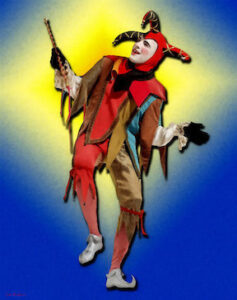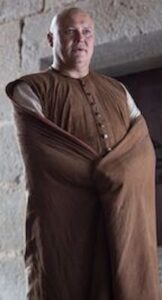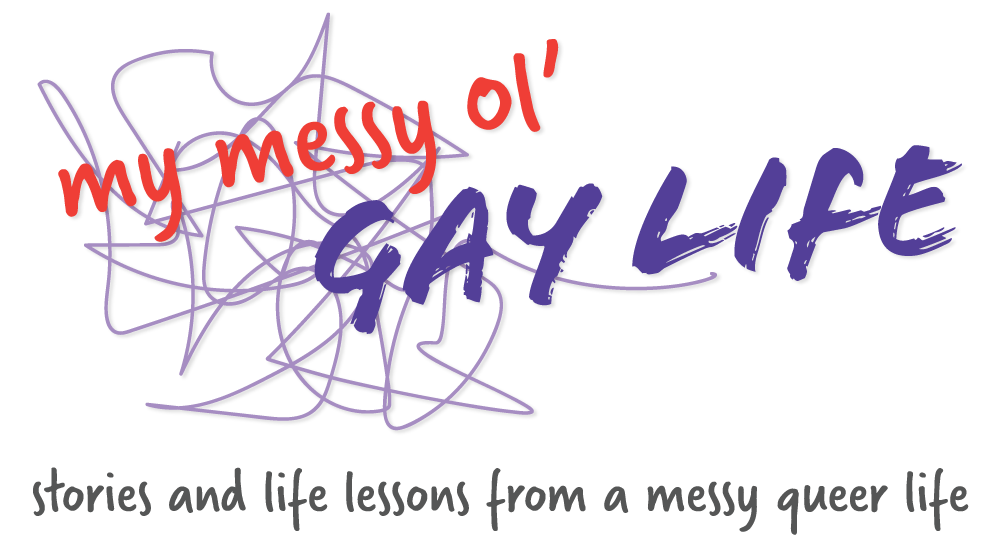In her book, Shameless, A Sexual Reformation, Nadia Bolz-Weber writes that she navigated her sex life “without any wisdom from my elders.” I had the same experience because most of my gay elders were deep in the closet.
They had good reasons to stay there since homosexual acts were illegal in most American states in the 1950s. Since homosexuality was also considered a mental illness, the courts and/or the families could put gay people in mental asylums or submit them to draconian treatments (like castration or aversion therapy) to “cure” them of their homosexuality.
Outwardly these men resembled my parents’ other friends. They were button-down-preppy and “straight-acting and appearing” (words that still set my teeth on edge), but there was always something different about them. By the time I was living as an out gay man, I asked my parents directly about their friends and they confirmed that they were gay.
But as a child, they were like aliens who swooped in and out of our suburban world from another planet called “California.” They were curious beings without wives, children, and, seemingly, without love lives.
When two of Mom’s Minnesota friends visited their straight counterparts, they assumed roles that transformed them into archetypes. Like in the royal courts of old, these roles gave them non-threatening parts to play in the greater heterosexual culture: The Jester and The Eunuch.
THE JESTER

I met Sanford Mattson and William Watson a handful of times. Sandy and Willy, as my mother called them, were scions of rich families in St. Paul. They attended the local all-male prep school while my Mom went to the private girls’ school in the tony Crocus Hill neighborhood. In their childhood years, they forged a bond that lasted until college and World War II splintered their little clique.
By the time I came to know them in the 1950s, Sandy lived in Los Angeles and Willy lived in San Francisco. When they visited St. Louis, they reminisced about old times and laughed over drinks with my parents, but whenever the subject of their personal lives on the West Coast came up, their conversations were riddled with large gaps like the thick, black lines of redacted prison letters.
Every year my family looked forward to an outrageous Christmas card from Sandy and he never disappointed. He once sent a black-and-white photograph of himself sitting up in bed with a half-naked woman (a model that he had hired for the photo-shoot) by his side. The picture depicted them under the sheets from the waist down, both bare-chested and wearing only identical, thick-framed black glasses. They looked blasé and engrossed in their morning newspapers while they each held up a hand-lettered sign reading “Merry” — “Xmas.”
I gawked and gawked at the picture since I had never seen a woman’s nude breasts, apart from my mother’s. Rather than hiding the card, my parents placed it on the mantel right next to the nativity scenes and the jolly Santas. During their annual holiday cocktail party, they proudly showed it to their guests and it was a real succès de scandale. Once the laughter died down, I heard the word “bohemian” for the first time.
The word “California” already represented a Magical Kingdom in my mind thanks to Disneyland, but after Sandy’s cards, it became a place where anything seemed possible and things like naked breasts were commonplace.
When I first met Sandy, he was in his late thirties, tall and broad-shouldered; his short, auburn hair neatly groomed. When he shook my small hand, his blue eyes were shaded behind tortoise-shell sunglasses. His tan face was not model-handsome, but good-looking in a hardy, Midwestern way.
No matter what the season, Sandy wore sporty-preppy clothes: La Coste shirts, khaki pants and Bass Weejuns with colorful socks. Over the years as my father’s crewcut went dull gray, his shoulders hunched and his mid-section billowed out into a beer belly, Sandy’s expensive haircuts shimmered with silver and his physique remained trim and robust.
By the time I was an adolescent, Mom began to make hints about Sandy’s lifestyle. She called him a “confirmed bachelor” who existed in a more carefree galaxy. While she was confined to the house with an abusive, alcoholic husband and two troubled teenagers, Sandy attended regular soirees (what Mom called “Hollywood parties”) and sometimes rubbed shoulders with movie stars.
While Mom did time in drying-out farms and mental hospitals in St. Louis, Sandy went on cruises and took long vacations with other “bachelors.” The closest she ever came to saying “homosexual” was when she called these guys “fun,” a word I had never heard in reference to a man before. Whenever Sandy blew into of town, he was like a Santa Ana wind that shook up our staid Midwestern lives for a little while.
Since he didn’t have a job, a wife or kids, I asked Mom what Sandy did in California.
“I never asked,” she shrugged.
When I wondered aloud if he was lonely, she reassured me that he had plenty of “California friends.”
But she could tell me a lot about Sandy’s past. Like how his parents were killed in a car crash when he was eleven and he was left in the care of a maiden aunt who oversaw his enormous trust fund. Since she had no clue how to raise, much less discipline, an obstreperous boy, Sandy enjoyed a lot more freedom than his friends. From an early age, he lived his life pretty much as he pleased.
He was a terrible student the University of Virginia, but he was far from dumb. He just wasn’t motivated since he was set for life financially. It took him seven years to graduate because he majored in fraternity parties that he wanted to go on forever.
He came into his inheritance at UVA and promptly bought a fire-engine red LaSalle Roadster. Being one of the few students on campus with a car, his popularity soared. When its engine burned up because it ran out of oil, he just left the smoking heap by the side of the road and bought another car.
When I applied to UVA in the late 1960s, Mom asked Sandy to write a letter of recommendation. Although he had only met me a few times, he wrote to the Registrar’s Office singing my praises like a favorite uncle, proclaiming that although he had been “on the Seven-Year Plan,” he was sure that I would prove to be a more diligent student.
After college he was drafted into the Navy and spent World War II as a “gob” (Mom’s word for the lowliest of sailors). Far from combat, he worked as a cook in the galley of a supply ship and enjoyed many liberties partying in the ports up and down the West Coast in his white sailor suit.
When the war ended, he settled in West Hollywood and only returned to St. Paul for occasional visits with his aunt and the family lawyer. Whenever he came into town, he took his married friends out to expensive restaurants and regaled them with heavily veiled tales of his many exploits. After his departure, they speculated about his homosexuality but, as usual. nobody ever asked him about it.
Sandy was naturally funny and endlessly entertaining, so he easily played the role of Court Jester among his straight friends. But his jocularity deflected attention away from his private life to the point where he morphed into a series of funny anecdotes and remained the eternal party-boy.
When he died in 1979, he left two hundred thousand dollars to his boyhood friend, Willy Watson.
THE EUNUCH

Willy hardly needed the money since he was from one of the richest families in St. Paul. After his father died when he was a toddler, his mother showered her only child with all of her affection. Willy suffered from asthma throughout his life but the condition provided him with a draft deferment during World War II.
He moved to post-war San Francisco but made regular trips to Minnesota for long visits with his mother. When he was in St. Paul, he socialized in the homes of his married friends and hosted big parties at the University Club on Summit Avenue. Rather than label him a “Mama’s boy,” they all admired his devotion to Mrs. Watson.
Though he didn’t need to work, he took a job as a travel agent and arranged many trips for his Minnesota gang, often tagging along on their vacations. He also planned separate travel excursions with Sandy and other “California friends.”
Where Sandy’s persona had a lurid edge, Willy affected a more effete pose. He was average-looking and his small, delicate frame and pasty-white skin betrayed his sickly nature. But where Willy was short in physical stature, he was long on hauteur with his flawless manners and urbane sophistication. He was an expert conversationalist, drank only fancy cocktails and never got sloppy-drunk.
He had box seats at the San Francisco Opera and was a perennial escort for debutantes and other unmarried ladies. While Sandy was vaguely disreputable, Willy came off as proper and asexual. If Sandy played the Jester, Willy was the court Eunuch.
Shortly after I moved to San Francisco in 1973, my mother asked Willy to look in on me, so he invited me over to his palatial three-bedroom apartment on Nob Hill for a drink. When he opened the door in a monogrammed smoking jacket, his open-collared Brooks Brother’s shirt adorned with an Hermes foulard, he was startled to discover a lanky, shaggy-haired young man in well-worn bell-bottoms and a wrinkly flannel shirt.
When I showed up at his apartment, I was well-aware that Willy was gay and I hoped that he might let his hair down with me after a few drinks. But within a short time, it became clear that our differences went far beyond our clothing preferences.
While I was part of a generation who lived openly in a flourishing gay community, Willy was still ensconced in the closet. Despite my hopes, he was far too skilled at keeping intimacy at bay, so I didn’t press the matter.
After a polite cocktail in front of a big fireplace and an amazing view of the Golden Gate Bridge, he drove me back to my humble digs atop Twin Peaks in the Castro neighborhood. Driving through the so-called “gay ghetto,” Willy looked aghast at the men walking arm-in-arm, laughing and kissing each other and strutting their stuff on the sidewalks.
“What am I going to tell your parents?” he sniffed as he turned onto Eighteenth Street heading up the steep hill to my pre-fab apartment complex. When he pulled up to the front of my building, I thanked him for a lovely evening and popped out of the car.
I lived in San Francisco for sixteen years and never saw him again. After just one meeting, we both understood that we inhabited different universes within the same city.
In his later years, Willy continued to make extended trips with his old friends, always a welcome addition for retired couples and newly-minted widows. He died of a heart attack during a bridge game on a cruise ship in the late 1980s, long before his adored mother who lived to be one hundred-and-two.
Though privileged, both Sandy and Willy acted as Court Jester and Eunuch, entertaining the lords and tending to the ladies on the sidelines while their straight-white-male peers wielded power in the mainstream culture.


